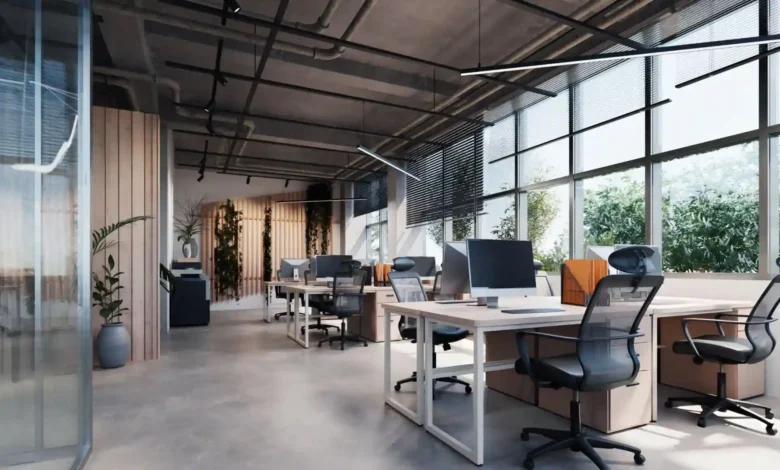Mastering Budget Friendly Office Lease Negotiation

Leasing an office space is a substantial expense that every business incurs. While negotiating a lease, companies usually search for strategies to save enough money to enable their marketing campaigns to stand out. This is especially true for startups that look forward to reducing their cash expenses.
If you belong to this league and searching for an office space for rent in Kelowna and Fraser Valley, the art of negotiation will depend on various factors. Undeniably, you need to do your research and homework. Find out how many other companies are vouching for the same location. Has the office space remained vacant for a while or does it have those smart features that businesses search for these days? Factors like these will significantly impact the negotiation strategies.
Read here to learn how to streamline the process of commercial space for lease in Kelowna and Fraser Valley and make it effortless.
1. Verify Your Needs
To get a rental for your office is a big expense. So, make sure you are thorough with your company’s needs. While assessing the needs, be sure to focus on the current as well as the future needs as teams in startups grow with time. Apart from this, you need to go back to the basics and analyse the size of the team, the growth potential, or if you have any plans of downsizing in the future. Once you have the information at your fingertips, you will surely find an office space that helps you meet your business objectives.
2. Negotiate for no-rent periods and ask for improvement allowances
Is the office space for rent in Fraser Valley that you are planning to lease lying vacant for a few months? Well, in that case, the landlord should be more willing to negotiate for all those months during which they received no rent. Besides, you need to also ask for allowances to customise the office space and ensure that they suit your needs. That way, the landlord will also move ahead cautiously, thinking that you are armed with knowledge. Once you qualify for improvement allowances, you should no longer need money to customise the space and benefit as a start-up.
3. Which Costs Can You Negotiate?
During negotiation for rent, you are likely to have a lot on the table. The key is handling them properly to reduce the overall expenses down the line. One of the basic factors that you can argue on is the base rent. Truly speaking, it is one of the most common factors that come up for negotiation during a commercial lease in Kelowna and Fraser Valley as it is influenced by the tenure of the contract, the market conditions, and the renovations needed. With a low base rent, you can offset the cost of the lease for the first year. Now that isn’t bad!
The second aspect you can talk about is the rent escalation. That way, you will have better control over the annual budget and can avoid unexpected rent increases.
4. Don’t Skip Competitive Bidding
Well, competitive bidding is one strategy that every tenant tries and you shouldn’t be an exception as well. Only the skills differ from one party to another and who knows you might come out victorious. Just tell your landlord that you have looked into multiple properties and if there is a negative response, you can just skip connections for a few days. If you aren’t too unlucky and bidding justifiably, the landlord should be more than willing to negotiate for favourable terms and conditions as they need to stay in competition with the other property owners in the same location.
5. Check the Additional Costs
Beyond the base rent, you cannot skip the additional rent or the hidden expenses associated with leasing the office space. Don’t just go over them but read between the lines to know how comfortable you would be to pay specific maintenance charges. Besides, there is likely to be a battery of operating expenses you need to mandatorily pay.
6. Discuss the Option of Merger and Reorganisation
If you are a start-up company and envisaging merger and reorganisation in the future, don’t skip the discussions about the subletting and assignment clause. As your business grows and more people invest, you may find yourself in a heap of trouble unless you hold prior discussions with the landlord.
Negotiating an office lease with cost-effective strategies is going to have a long–term effect on your company’s revenue. So, make sure you communicate the requirements clearly and commit yourself as a responsible tenant. A quick glimpse of commercial real estate development in Kelowna and Fraser Valley should put you in a better position to secure the office space within your budget.
Summary:
The article delves into mastering budget-friendly office lease negotiations, particularly tailored for businesses, especially startups, seeking office spaces in Kelowna and Fraser Valley. It emphasizes the importance of thoroughly assessing current and future office space needs, negotiating for rent-free periods and customization allowances, and strategically handling costs like base rent and rent escalation. The piece encourages engaging in competitive bidding to foster negotiation leverage and underlines the significance of scrutinizing additional costs associated with leasing beyond the base rent. Furthermore, it highlights the need for discussions about subletting and assignment clauses, particularly for startups considering future mergers or reorganizations. The overall message underscores that skillful negotiation, based on these strategies, can have a lasting positive impact on a company’s revenue, urging clear communication of requirements to secure a budget-friendly office space.
FAQs
What is office lease?
An office lease is a legal agreement between a landlord and tenant specifying terms for renting office space. It includes details like lease duration, rent amounts, responsibilities for maintenance, and conditions for renewal or termination. Leasing provides flexibility without the need for property ownership, allowing businesses to adapt and benefit from shared amenities.
What is the difference between a lease and a serviced office?
A lease is a legal agreement between a landlord and tenant, outlining terms for renting space, often with a longer commitment. A serviced office, on the other hand, is a fully furnished and equipped office space with shared amenities, typically on a shorter, flexible lease, and often includes services like reception and maintenance. The key difference lies in the level of flexibility, duration, and the extent of services provided.


